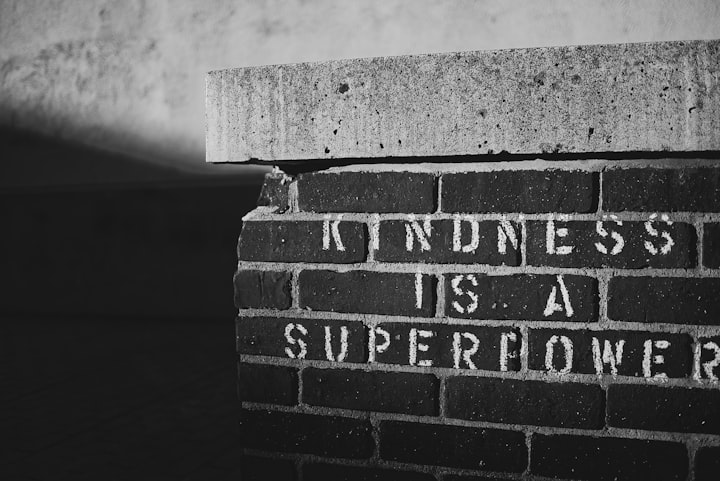
I turned 44 recently.
To celebrate, I got up at 4:45 am, had a bite to eat, and ran 10 miles in the cold. There was snow on the ground and with the wind chill it was about 25 °F.
Running south, there was a stiff wind blowing; one of those winds that makes you cry involuntary tears.
At one point in the run, I questioned my life choices.
44 trips around the sun. Seasonally speaking, I’ve known more winters than summers. Metaphorically, far more summers than winters.
When I was little, 44 seemed ancient to me. Now that I am 44, it doesn’t seem so old. My capacity to step out my front door and run 10 miles is almost as good as it has ever been. I’m slowly getting a grip on the stress in my life, and have made some strides toward improving my diet as well.
In short: I have pretty good health and good mobility. I perceive that I’m a young 44 year old.
Perspective is an interesting thing. When you’re young, you look forward to the future. As more years pass, the perspective shifts. You spend an increasing amount of time thinking about the past:
- Thoughts that are laced with regret
- Thoughts filled with nostalgia for the way things were
- Thoughts of gratitude for experiences lived and lessons learned, or gratitude that a tough experience has ended
Thoughts about the future are also increasingly present:
- College, trade school, or simply learning to adult
- Marriages and family expansion (if chosen)
- Other relationships
- Work
- Retirement
- Failing health
- All of the attendant life experiences
- Death
When distilled to a bullet-point list, life can seem incredibly fleeting.
· · · · · · · · · ·
Back to the run.
Often, when I run with my cadre of running companions, we run early — typically completing a run before the sun rises. On that particular morning, however, I ran alone and a bit later than usual. Fun fact: if you run west for a while and expect to end up where you started then you also have to run east for a while.
The sun hadn’t risen yet when I left home. As I ran west, however, the light from my headlamp became less and less relevant as the sun began to illuminate the sky. Even though there was significant cloud cover, without even looking, I knew the moment the sun rose above the mountains that shape the eastern horizon where I live.
Something about the immediate warmth of the sun that morning caused me to stop, turn around, and look in the direction of the light.
· · · · · · · · · ·
It hasn’t been a conscious choice, but the older I’ve gotten, the more I appreciate the beauty of a sunrise. That morning, I considered the breathtaking sunrise a gift for my birthday. It wasn’t just the beauty of the scene, however, that caused me to reflect on it over the subsequent few days.
There are so many wonderful analogies about sunrises and the promise of a new day. That morning, it was the act of turning, lifting my eyes, and looking that impacted me in an unexpected way.
To see a wonderful sunrise, sometimes you have to turn and look. Similarly, there are opportunities in life where a course correction means turning (sometimes a total reversal), lifting our gaze, and really looking to see where we’ve gone wrong. With the additional illumination that comes from the new perspective, we’re prepared to make a plan to get on and follow a more preferred track.
When I was younger, I dated someone I grew to love a great deal. However, there were enough differences in our values that we ultimately recognized that a life-long commitment to each other would never be possible.
Value Systems
Value systems tend to develop naturally with experience and age. They are the scaffolding that helps us build a life we want. We don’t often articulate our value systems. Their development is so subtle that we often don’t realize or pay attention to nurturing them. They just become a part of who we are and how we make decisions. Those are the value systems that generally get passed on by tradition and circumstance; systems we might not choose for ourselves if we were consciously choosing.
My “first love” was perhaps the earliest experience I had in developing an unrecognized value system that informed later dating and eventually marriage. Even though it was an unconscious value system, it has served me well as my wife and I have been married for almost 22 years, 21 of them happy.
Even though many of these frameworks develop without much conscious effort, there are many opportunities to stop and look at our lives and make necessary adjustments to our values in order to realign desires and reality. It’s generally not an easy process because we’re trying to change something that just kind of happened to us based on unconscious decisions.
Craig D. Lounsbrough said:
If we dare examine our decisions, we will see our values woven in and through every single one of them. Therefore, it would do us well to take an occasional peek to insure that our values remain at their peak.
The more we pay attention to the value systems we’re developing, the easier it is to align what we do with what we want out of life. For example, if you want to improve your relationship with your partner, it won’t happen by accident. It will, at least in part, require identifying what you value in that relationship, articulating those values to your partner, then finding the common ground where you both get what you need (and sometimes what you want) from the relationship without expecting the other to show up in a particular way.
We often seem to evaluate our value systems when discontentment arises in our lives. What’s even more interesting is that discontentment often increases as we try to figure out how to go from where we are to where we want to be. The tricky thing is that added resistance (both internal and external) can either indicate we’re on the right track or headed in the wrong direction. Which is which can only be determined by following one path then course-correcting iteratively until you end up where you want to be. The important thing is to evaluate often so you don’t get too far down a path that isn’t where you want to go.
A parting thought from Idowu Koyenikan, “A highly developed values system is like a compass. It serves as a guide to point you in the right direction when you are lost.”
· · · · · · · · · ·
Thanks for reading!
About the Creator
Enjoyed the story? Support the Creator.
Subscribe for free to receive all their stories in your feed. You could also pledge your support or give them a one-off tip, letting them know you appreciate their work.





Comments (1)
Test is not accepting comments at the moment
Want to show your support? Send them a one-off tip.